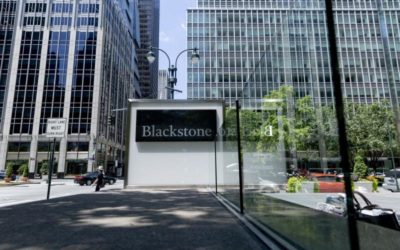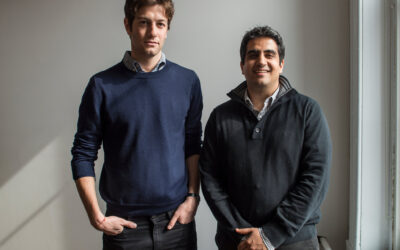The ghoulish capers of the AA, the roadside rescue business hoping for a lifeline from private equity, looks to Lombard like a danse macabre.
On Thursday, the AA revealed that Centerbridge and Platinum have bowed out, leaving TowerBrook Capital and Warburg Pincus to team up for a gavotte with the debt-heavy company.
Hopes raised a month or so ago that the AA might be worth as much as 50p a share to a bidder look increasingly optimistic. Shares trade at 29p each. Albert Bridge, the group’s biggest shareholder, may argue that a business generating so much cash deserves more. But it cannot expect to sway the outcome. Its 18.4 per cent stake of the AA’s £175m market capitalisation represents about 1 per cent of the group’s total enterprise value.
The AA’s £2.6bn debt is the legacy left by previous private equity partners who flogged the business to investors in 2014 at 250p a share. Just before the float, they loaded the group up with £3bn in new debt and almost immediately took a payment of £2.6bn in cash. That is about how much debt the group still has.
Apologists say it was different then. The debt was sustainable. The AA has since suffered from disappointing growth in both membership and profitability.
Yet even if it was OK to gear up balance sheets six years ago, it is not OK now amid massive economic uncertainty. This has not stopped private equity groups piling cheap debt on to their investee companies. In the first couple of weeks of September nearly a quarter of the money raised in the US loan market was used to fund dividend payouts to private equity owners — a five-year high.
The AA has survived for 115 years. If it is to last another decade it needs cash to pay off its debts and investments to keep up with a world in which cars break down less often but have more complex problems. Both are tricky when interest payments are about £130m a year. That is equal to half of last year’s operating profits.
Optimists may hope the AA’s potential new private equity partners will dip into their pockets rather than de-risking their investment by taking out cash. History is against them. Pessimists are only optimists with a few more years on the road.
Smiths’ medical dilemmaSmiths Group seems to be as keen to avoid labels as the rock band. It also seems to be just as averse to being broken up.
The company, often dubbed Britain’s last conglomerate, has long toyed with hiving off its medical division, which does not quite fit with the rest of the group’s flexible hoses and airport scanners. Successive efforts to flog the division, which makes syringes, pumps and ventilators, have collapsed in the past decade. In 2018 the group declared it would separate out or spin off the division by early 2020. If a buyer came along, all the better.
The plan inched forwards in 2019 but was put on hold this year during the pandemic when the group’s ventilators, used by ambulance crews, came into their own. Smiths’ Medical revenues — at about £900m in the year to July — rose 5 per cent to £918m, a little under a third of the total.
Instead, Smiths announced a strategic restructuring in June to lift the rest of the group’s margins up above 18 and 20 per cent.
On Thursday, it said they were about 15 per cent, a tad lower than margins on its medical kit. Advocates took pains to talk about the strength of the group’s cash flow and the fact it had reinstated the dividend.
At the same time, boss Andy Reynolds Smith said plans to separate out the medical division had not changed and that it would be cast off next year — part of an overhaul to increase savings. The shares, which touched highs above £18 in 2018, fell 7 per cent to £13.27.
The Smiths band sang: “Last night I dreamt that somebody loved me. No hope but no harm. Just another false alarm.” It broke up in 1987.
Smiths, the 165-year old company, might be loved more if it got on with breaking itself apart.
Willie Walsh’s new gaffeWillie Walsh, combative and camera-shy ex-boss of British Airways, has rocked up as deputy chairman of CarTrawler within weeks of leaving International Airlines Group.
CarTrawler, which was bought in May by private equity group Towerbrook (the same TowerBrook that is looking at the AA), is into car rental and travel technology. It won’t be an easy billet during the pandemic. Mr Walsh, sometimes known as Slasher Walsh and paid £3.2m for being boss of BA in 2019, presumably wrote out a list of pros and cons. Pros: no journalists to cast a light on pay and no institutional shareholders to moan about it. Cons: being the plaything of private equity.
Source: Financial Times
Can’t stop reading? Read more
US Pipeline Operator ONEOK Inks Two Deals for $5.9 Billion
US pipeline operator ONEOK Inc. agreed to buy a Permian Basin rival and a controlling stake in...
Blackstone Is Said to Seek A$5.5 Billion Loan for AirTrunk Bid
Private equity firm Blackstone Inc. is in discussions with banks for a five-year loan of about...
Thrive Capital to lead multi-billion dollar OpenAI investment round at $100bn valuation
OpenAI, the company behind the popular AI tool ChatGPT, is in advanced talks to secure several...




